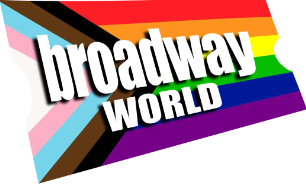BWW Blog: Lisa Beth Vettoso - What are We Doing and are we Doing it Well?
So a schedule is in place, TA's have been assigned to their classes, the curriculum has been updated and edited, and meetings and professional development sessions have been scheduled or have already taken place. It is official - another school year has begun!
So it's natural, and seemingly inevitable, that our minds immediately shift from what we're doing to if we're doing it well. That's right - assessment! We know what we're teaching and we know what we want our students to learn - but how do we go about knowing if they are learning it?
In DANCE POWER's 3rd grade program, we mainly rely on three modes of assessment: student observation, a flexibility assessment, and a pre-, mid- and post residency quizzes.
The student observation is less regimented - we rely on the Teaching Artist and the PE teacher to make note of individual students' performance in-class, their participation level, their behavior, and their attendance at the final event. These observational assessments are the basis for the TA scholarship selections (the 4 students at each school that will be given a scholarship to continue dancing the following year at Princeton Ballet School).
The flexibility assessment, similar to the Presidential sit-and-reach test, allows us to gauge if regular stretching and movement increases their overall flexibility.
Finally, the pre-, mid-, and post-residency quizzes allow us to examine a variety of things, such as student comfort and confidence levels at the beginning and end of the residency, student retention of vocabulary, and student interest in continuing to dance, to name a few.
Looking at this list, I can't help but ask myself, yet again, are we doing it well? This time though, I ask this question in relation to our assessments. Are we using the right methods? And are we asking the right questions?
Beyond knowing your material and what you hope the students will gain from the residency, it is important to know what your specific challenges are. For example, children participating in DANCE POWER are not only younger students, but many of them are learning English as a second language, so our quizzes, written in English, are a challenge regardless of the material. Based on this and our understanding that children are all different types of learners, we tweaked our assessments this year, simplifying the language and including emoticons and more multiple choice options.
Still, are we collecting the information we need to make the right decisions about our program and our curriculum? I recently read an interesting article about data collection by Larry McGill entitled "What is "good enough" for data?" In this article, he articulated that often when we hear the word "data," our minds jump to technical data, specific data that can be calculated and stored in databases. But what about all of the information we can glean from the experience that may not be as neat, but is still just as important?
Every child learns differently, and in DANCE POWER, we try to offer opportunities for students to connect with aspects of the program be they kinesthetic, auditory, or visual learners. An ESL student may not understand everything the Teaching Artist is communicating verbally, but he/she can hear the music, feel the beat, and follow the movement.
This is not a new concept - this is learning through the arts. All art forms offer innumerable ways for children with different learning styles and/or specific challenges to look at things from different angles and bring their STRENGTHS to the table, NOT their weaknesses. It instills in them the ability and the confidence to think creatively and to be problem solvers. These lessons they learn as a child will become the skills they utilize throughout their adulthood.
So when looking at our work, I realize that I need to open up my eyes and look more broadly. I need to look at the data I can gather in all forms for me to make sure that we are consistently improving what we do and how we do it. So how about you? How do you assess?
Comments
Videos
